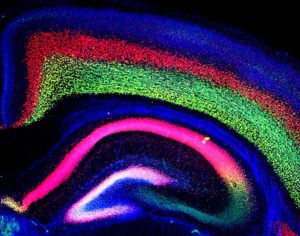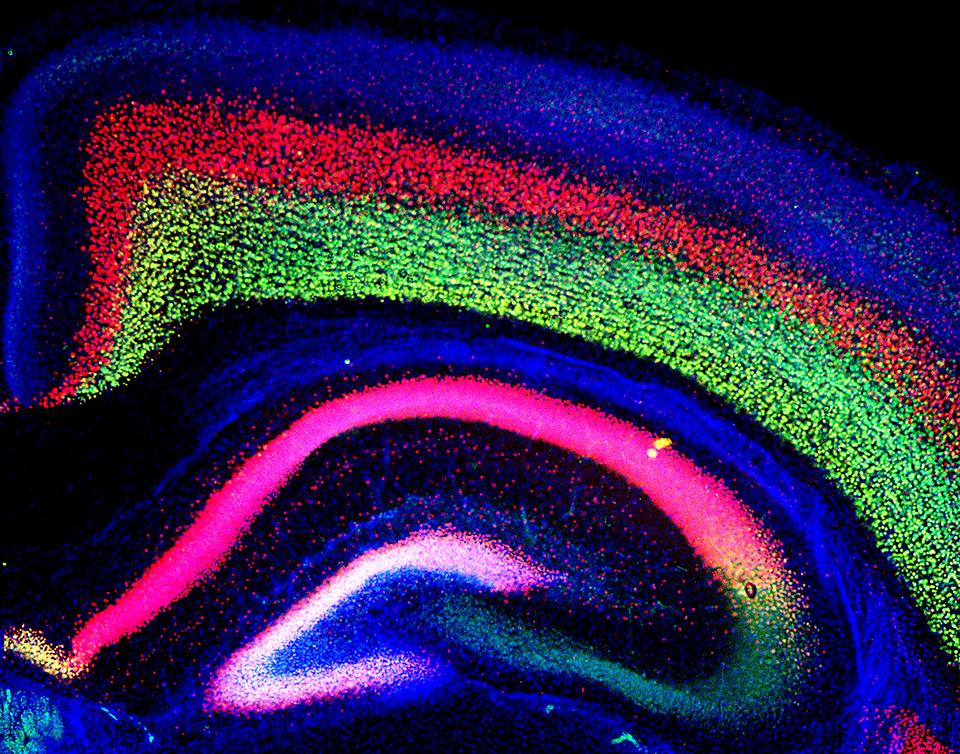
In this mouse cortex, a mutation in the CHD8 gene caused increased brain size, a condition also present in people with autism spectrum disorder. Credit: Alex Nord/UC Davis
Using a genetic mouse model developed at Berkeley Lab with CRISPR/Cas9 editing technology, University of California, Davis, researchers led by Alexander Nord have examined the developmental impact of a specific mutation found in some rare cases of autism spectrum disorder (ASD). The project began while Nord—now an assistant professor with the Center for Neuroscience at UC Davis—was a postdoc in the Mammalian Functional Genomics Laboratory of Berkeley Lab co-authors Axel Visel, Len Pennacchio, and Diane Dickel. In a paper published June 26 in the journal Nature Neuroscience, the researchers report that mice with a loss-of-function mutation in one copy of the CHD8 gene have increased brain volume and cognitive impairment, similar to that seen in people with the same mutation. CHD8 encodes a protein responsible for packaging DNA in cells, which in turn controls gene expression during development. Read more from UC Davis.




